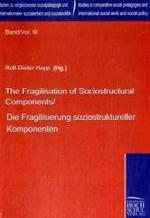- ホーム
- > 洋書
- > 英文書
- > Computer / Languages
Full Description
Maximize Reward and Minimize Risk with Modern C++
Embracing Modern C++ Safely shows you how to make effective use of the new and enhanced language features of modern C++ without falling victim to their potential pitfalls.
Based on their years of experience with large, mission-critical projects, four leading C++ authorities divide C++11/14 language features into three categories: Safe, Conditionally Safe, and Unsafe. Safe features offer compelling value, are easy to use productively, and are relatively difficult to misuse. Conditionally safe features offer significant value but come with risks that require significant expertise and familiarity before use. Unsafe features have an especially poor risk/reward ratio, are easy to misuse, and are beneficial in only the most specialized circumstances.
This book distills the C++ community's years of experience applying C++11 and C++14 features and will help you make effective and safe design decisions that reflect real-world, economic engineering tradeoffs in large-scale, diverse software development environments. The authors use examples derived from real code bases to illustrate every finding objectively and to illuminate key issues. Each feature identifies the sound use cases, hidden pitfalls, and shortcomings of that language feature. After reading this book, you will
Understand what each C++11/14 feature does and where it works best
Recognize how to work around show-stopping pitfalls and annoying corner cases
Know which features demand additional training, experience, and peer review
Gain insights for preparing coding standards and style guides that suit your organization's needs
Be equipped to introduce modern C++ incrementally and judiciously into established code bases
Seasoned C++ developers, team leads, and technical managers who want to improve productivity, code quality, and maintainability will find the insights in this modular, meticulously organized reference indispensable.
Register your book for convenient access to downloads, updates, and/or corrections as they become available. See inside book for details.
Contents
Foreword by Shawn Edwards xiii
Foreword by Andrei Alexandrescu xv
Acknowledgments xix
About the Authors xxv
Chapter 0: Introduction 1 What Makes This Book Different 1
Scope for the First Edition 2
The EMC++S Guiding Principles 3
What Do We Mean by Safely? 4
A Safe Feature 5
A Conditionally Safe Feature 5
An Unsafe Feature 6
Modern C++ Feature Catalog 6
How to Use This Book 8
Chapter 1: Safe Features 11 1.1 C++11 11
Attribute Syntax | Generalized Attribute Support 12
Consecutive >s | Consecutive Right-Angle Brackets 21
decltype | Operator for Extracting Expression Types 25
Defaulted Functions | Using = default for Special Member Functions 33
Delegating Ctors | Constructors Calling Other Constructors 46
Deleted Functions | Using = delete for Arbitrary Functions 53
explicit Operators | Explicit Conversion Operators 61
Function static '11 | Thread-Safe Function-Scope static Variables 68
Local Types '11 | Local/Unnamed Types as Template Arguments 83
long long | The long long (≥64 bits) Integral Type 89
noreturn | The [[noreturn]] Attribute 95
nullptr | The Null-Pointer-Literal Keyword 99
override | The override Member-Function Specifier 104
Raw String Literals | Syntax for Unprocessed String Contents 108
static_assert | Compile-Time Assertions 115
Trailing Return | Trailing Function Return Types 124
Unicode Literals | Unicode String Literals 129
using Aliases | Type/Template Aliases (Extended typedef) 133
1.2 C++14 138
Aggregate Init '14 | Aggregates Having Default Member Initializers 138
Binary Literals | Binary Literals: The 0b Prefix 142
deprecated | The [[deprecated]] Attribute 147
Digit Separators | The Digit Separator (') 152
Variable Templates | Templated Variable Declarations/Definitions 157
Chapter 2: Conditionally Safe Features 167 2.1 C++11 167
alignas | The alignas Specifier 168
alignof | The alignof Operator 184
auto Variables | Variables of Automatically Deduced Type 195
Braced Init | Braced-Initialization Syntax: {} 215
constexpr Functions | Compile-Time Invocable Functions 257
constexpr Variables | Compile-Time Accessible Variables 302
Default Member Init | Default class/union Member Initializers 318
enum class | Strongly Typed, Scoped Enumerations 332
extern template | Explicit-Instantiation Declarations 353
Forwarding References | Forwarding References (T&&) 377
Generalized PODs '11 | Trivial and Standard-Layout Types 401
Inheriting Ctors | Inheriting Base-Class Constructors 535
initializer_list | List Initialization: std::initializer_list 553
Lambdas | Anonymous Function Objects (Closures) 573
noexcept Operator | Asking if an Expression Cannot throw 615
Opaque enums | Opaque Enumeration Declarations 660
Range for | Range-Based for Loops 679
Rvalue References | Move Semantics and Rvalue References (&&) 710
Underlying Type '11 | Explicit Enumeration Underlying Type 829
User-Defined Literals | User-Defined Literal Operators 835
Variadic Templates | Variable-Argument-Count Templates 873
2.2 C++14 958
constexpr Functions '14 | Relaxed Restrictions on constexpr Functions 959
Generic Lambdas | Lambdas Having a Templated Call Operator 968
Lambda Captures | Lambda-Capture Expressions 986
Chapter 3: Unsafe Features 997 3.1 C++11 997
carries_dependency | The [[carries_dependency]] Attribute 998
final | Prohibiting Overriding and Derivation 1007
friend '11 | Extended friend Declarations 1031
inline namespace | Transparently Nested Namespaces 1055
noexcept Specifier | The noexcept Function Specification 1085
Ref-Qualifiers | Reference-Qualified Member Functions 1153
union '11 | Unions Having Non-Trivial Members 1174
3.2 C++14 1182
auto Return | Function (auto) Return-Type Deduction 1182
decltype(auto) | Deducing Types Using decltype Semantics 1205
Afterword: Looking Back and Looking Forward 1215 Glossary 1217
Bibliography 1281
Index 1305







